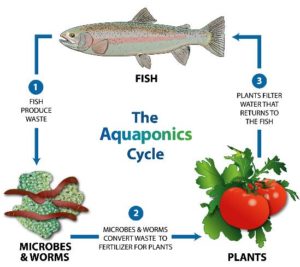This is a new product in a popular area catering to people who would like to build their own food production hydroponic gardening system at home. Similar to gardening using the method of hydroponics (growing plants without soil) aquaponics uses fish to grow plants.
EASY DIY AQUAPONICS
This is by far the best system for being a self-sustaining gardener and lower your monthly grocery budget by half. You can imagine having a dinner that came from your backyard and you grew and raised all of it?
Similar to other DIY programs in this easy DIY aquaponics is the only offer on the market that teaches and instructs users in the most popular and successful methods of using aquaponics for food production. The next level of hydroponic gardening. This includes the use of grow bed media in an ebb and flow system using a bell siphon.
What if I told you that you could catch fish for dinner right in your own backyard? And if you did, what if I told you that right up until you caught those fish, they were growing the veggies for the rest of your dinner? Would you believe me if I told you this is all within reach using a new style of hydroponic gardening called Aquaponics?
Aquaponics is, at its most basic level or, the marriage of aquaculture (raising fish) and hydroponics (growing plants in water and without soil) together in one integrated system. The fish waste provides organic food for the growing plants. The plants naturally filter the water in which the fish live. The third and fourth critical, yet invisible actors in this symbiotic world are the beneficial bacteria and composting red worms. Think of them as the Conversion Team. The beneficial bacteria exist on every moist surface of an aquaponic system. They convert the ammonia from the fish waste that is toxic to the fish and useless to the plants, first into nitrites and then into nitrates. The nitrates are relatively harmless to the fish and most importantly, they make terrific plant food. At the same time, the worms convert the solid waste and decaying plant matter in your aquaponic system into vermicompost.




